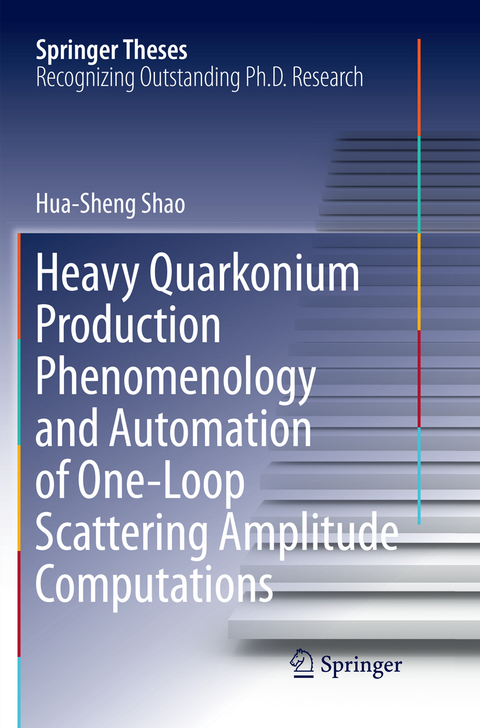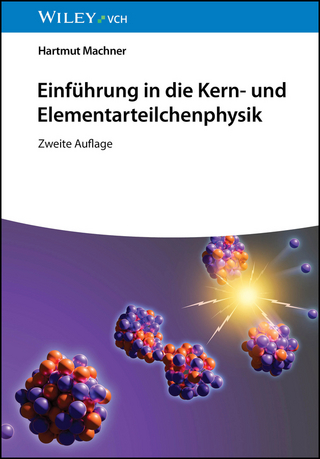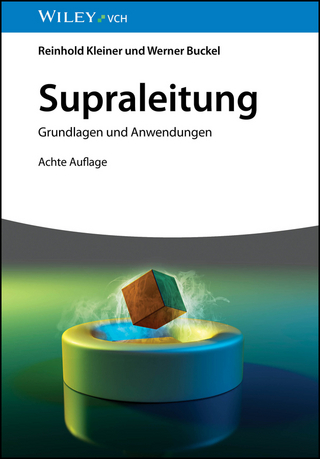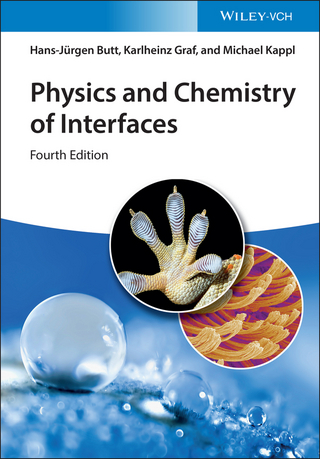
Heavy Quarkonium Production Phenomenology and Automation of One-Loop Scattering Amplitude Computations
Springer Verlag, Singapore
978-981-10-9404-0 (ISBN)
This book focuses on the study of heavy quarkonium production at high-energy colliders as a useful tool to explain both the perturbative and non-perturbative aspects of quantum choromodynamics. It provides the first comprehensive comparison between the theory and recent experiments and clarifies some longstanding puzzles in the heavy quarkonium production mechanism. In addition, it describes in detail a new framework for implementing precise computations of the physical observables in quantum field theories based on recently developed techniques. It can be used to simulate the complicated collider environment of the Large Hadron Collider at the Conseil Européen pour la Recherche Nucléaire (CERN). Its accomplishment implies that the Monte Carlo simulations for high-energy physics experiments have reached the limits of precision. It offers readers a wealth of valuable information on the relevant techniques.
Dr. Hua-Sheng Shao received his B.Sc. in physics from Peking University, China in 2009. He obtained his Ph.D. in theoretical physics from the School of Physics, Peking University in June 2014. His major research project in Prof. Kuang-Ta Chao’s group is heavy quarkonium production phenomenology. During his Ph.D. career, he was also invited to spend a year at the Conseil Européen pour la Recherche Nucléaire (CERN), from Sep 2012 to Aug 2013. He then joined the MadGraph5_aMC@NLO international collaboration, which aims to provide a general framework for high-energy physicists (both theorists and experimentalists) to automatically perform precise theoretical predictions in quantum field theories. He is now a postdoctoral fellow working with Prof. Michelangelo Mangano, Prof. Stefano Frixione, Prof. Fabio Maltoni and Prof. Roberto Pittau at CERN, focusing on general high-energy physics phenomenology, especially on the physics at the Large Hadron Collider at CERN.
Introduction.- Background of heavy quarkonium physics.- HELAC-Onia.- Heavy quarkonium production in hadronic collisions.- Inclusive $J//psi$ production at B factories.- Summary and Outlooks of Part I.- NLO Computations and Automation Philosophy.- One-loop Computations: OPP vs TIR.- MadLoop5.- Automation of NLO Computations.- Summary and Prospects of Part II.- Appendix.
| Erscheinungsdatum | 23.08.2018 |
|---|---|
| Reihe/Serie | Springer Theses |
| Zusatzinfo | 33 Illustrations, color; 11 Illustrations, black and white; XVII, 167 p. 44 illus., 33 illus. in color. |
| Verlagsort | Singapore |
| Sprache | englisch |
| Maße | 155 x 235 mm |
| Themenwelt | Naturwissenschaften ► Physik / Astronomie ► Atom- / Kern- / Molekularphysik |
| Naturwissenschaften ► Physik / Astronomie ► Hochenergiephysik / Teilchenphysik | |
| Naturwissenschaften ► Physik / Astronomie ► Mechanik | |
| Naturwissenschaften ► Physik / Astronomie ► Quantenphysik | |
| Naturwissenschaften ► Physik / Astronomie ► Theoretische Physik | |
| Naturwissenschaften ► Physik / Astronomie ► Thermodynamik | |
| Schlagworte | Computation of One-Loop Scattering Amplitudes • Heavy Quarkonium • Monte Carlo simulation • Next-to-leading Order Computations • NLO QCD corrections • One-Loop Scattering Amplitudes • Photon Shower • Spin Density Matrix |
| ISBN-10 | 981-10-9404-7 / 9811094047 |
| ISBN-13 | 978-981-10-9404-0 / 9789811094040 |
| Zustand | Neuware |
| Haben Sie eine Frage zum Produkt? |
aus dem Bereich


